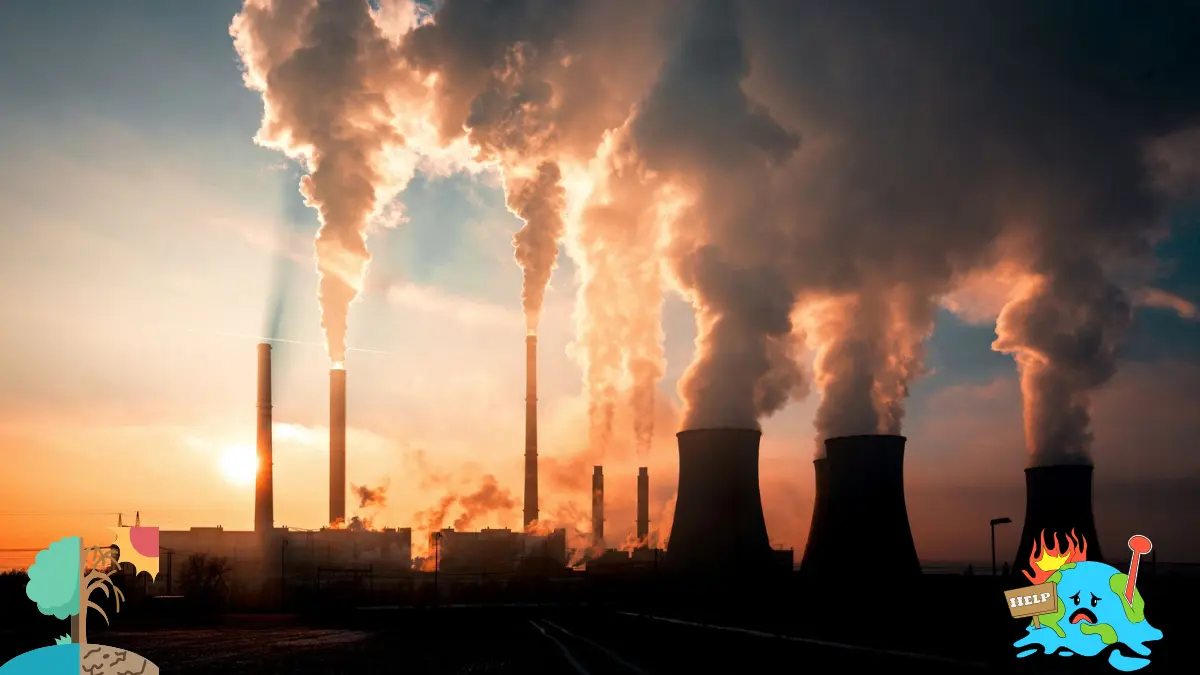
The United Nations Environment Programme (UNEP) recently released a report revealing a pause in global efforts to combat climate change. According to the report, no major progress was made in 2023 towards limiting global warming to 1.5°C. For countries like India, this delay could mean even more challenges in controlling extreme weather patterns, which impact agriculture, water supply, and overall livelihoods. What does this report mean for India and the world? Let’s explore the details.
UNEP Highlights Lack of Climate Action Progress
UNEP’s report shows a concerning trend: despite years of discussion, global action on climate change has not moved forward. Nations have set goals to reduce greenhouse gases and limit temperature rise, but this report highlights that these goals were not met in 2023. The main target is to keep the earth’s temperature from rising beyond 1.5°C, as this level is seen as a tipping point that could lead to severe, often irreversible, climate impacts.
One of the main reasons for this stall in progress is the continued reliance on fossil fuels, which release large amounts of carbon dioxide into the atmosphere. Carbon dioxide and other greenhouse gases trap heat, leading to higher global temperatures. UNEP is now urging nations to take quicker and stronger actions, especially since climate impacts are already visible in many regions.
What Does This Mean for India?
India is one of the countries likely to be greatly affected if climate action does not speed up. With rising temperatures, India is seeing more extreme weather events, such as heatwaves, intense rains, and severe droughts. These climate changes put pressure on India’s agriculture, making it harder for farmers to grow enough food.
Water scarcity is also becoming a serious issue. Many parts of India depend on seasonal rains, and when rainfall patterns change due to climate shifts, water becomes less predictable and often insufficient. UNEP’s report indicates that without stronger global action, countries like India may struggle to maintain resources essential for their population’s needs.
Climate Change’s Impact on Daily Life in India
The effects of climate change in India go beyond environmental shifts—they affect people’s daily lives. Farmers face challenges growing crops in uncertain weather, which impacts food supply and food prices across the country. Families in rural areas, who rely on farming as their main income, are especially vulnerable. Additionally, with water resources under threat, both rural and urban areas are experiencing shortages, leading to disruptions in households and communities.
The climate changes are also raising health risks. Heatwaves, for example, have become more frequent and intense, putting people’s health at risk, especially the elderly and those with existing health conditions. Many people in India now see these changes as a direct threat to their lives and well-being, highlighting the need for urgent action.
UNEP’s Call for Action: What Needs to Change?
To address this stalled progress, UNEP suggests several actions. First, countries need to shift more aggressively from fossil fuels to renewable energy sources, such as solar and wind power. India has made strides in adopting solar energy, but more work is needed to reduce dependence on coal and other fossil fuels. UNEP also recommends improving efficiency in energy use and protecting forests, which absorb carbon dioxide naturally.
India is already making some efforts, such as investing in green energy projects and adopting conservation practices, but UNEP’s report shows that stronger, faster action is necessary. These changes not only help India but also contribute to global climate goals.
What Lies Ahead?
The UNEP report serves as a wake-up call, especially for countries facing high climate risks. If global action does not speed up, more extreme climate effects could become the new normal. For India, this could mean more frequent droughts, unpredictable weather, and pressure on food and water supplies.
In response to UNEP’s call, countries may step up their commitments in the coming months. For India, embracing sustainable practices and investing in climate resilience could make a big difference. Climate experts believe that immediate and consistent action could help countries like India cope better with future changes, ensuring a safer and more sustainable environment for all.





